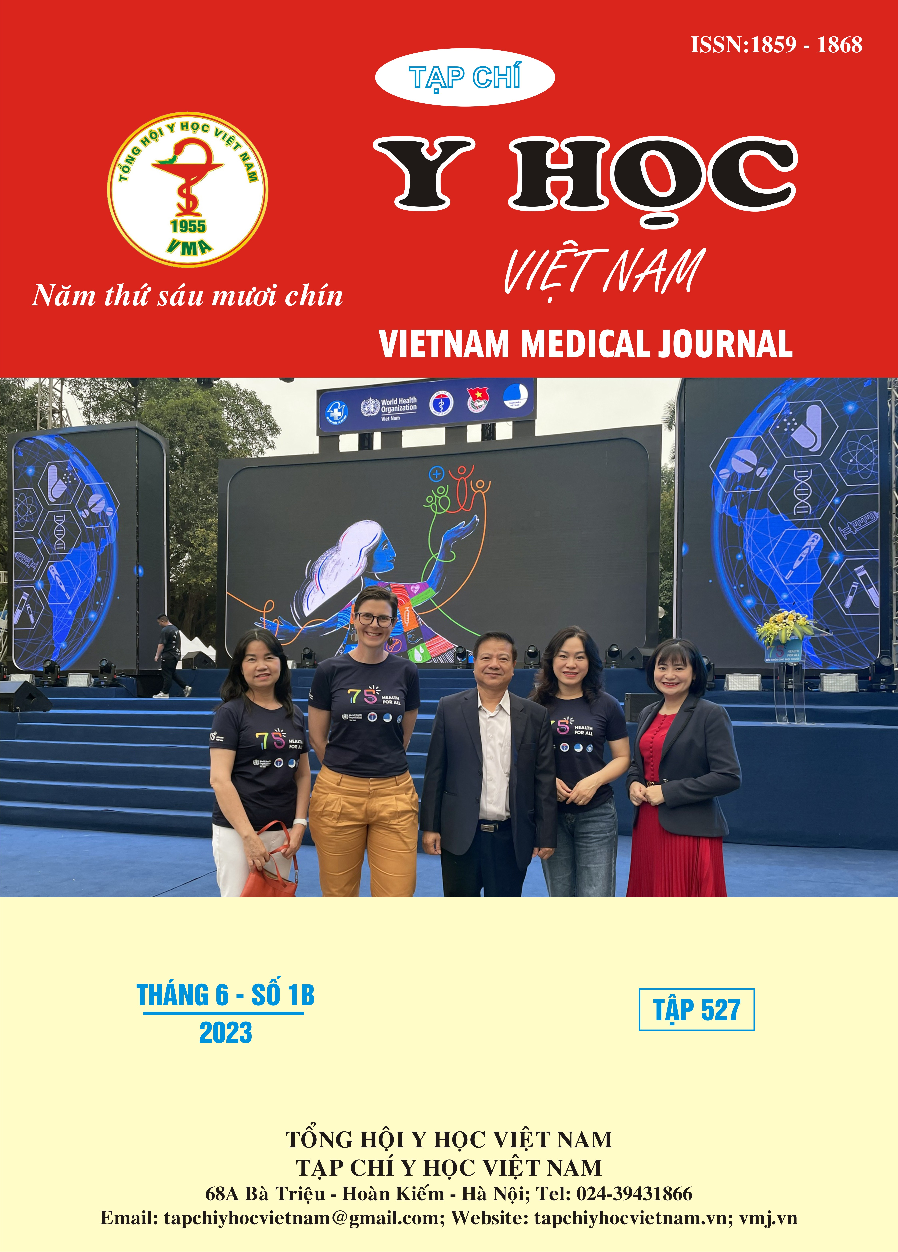EVALUATION OF SOME PROGNOSTIC FACTORS FOR SURVIVAL TIME AFTER CURATIVE GASTRECTOMY FOR GASTRIC ADENOCARCINOMAS AT VIET DUC UNIVERSITY HOSPITAL
Main Article Content
Abstract
Surgery remains the principal treatment of gastric adenocarcinomas, however, prognostic factors have been not widely studied. Objectives: To analyze some prognostic factors after curative gastrectomy in the treatment of gastric adenocarcinomas at Viet Duc University Hospital. Subject and methods: Descriptive retrospective study with longitudinal follow-up, no control on gastric adenocarcinoma cases undergoing radical surgery at Viet Duc University Hospital since January 1, 2014. until December 31, 2018. Results: 302 cases underwent radical surgery for gastric adenocarcinoma with the rate of TNM stage 0, I, II, III respectively 1.4%, 34.8%, 27.4% , 36.4%. The significant poor prognostic factors for the survival time after surgery include older age, weight loss, stenosis, gastrointestinal bleeding, anemia, elevated CEA, tumor size > 3cm, poor differentiation, neurovascular invasion, extension to the serosa (pT3-4) and lymph node metastasis. No difference in gender, laparoscopic or open surgery, D2 or D2+ lymphadenectomy. Conclusion: The 5-year survival rate could be estimated based on prognostic factors, but prospective, randomized studies are needed
Article Details
Keywords
Gastric cancer, curative surgery, prognostic factors
References
2. Trịnh Hồng Sơn. Nghiên cứu nạo vét hạch trong điều trị phẫu thuật ung thư dạ dày. Luận văn tiến sỹ y học. Đại học Y Hà Nội; 2001.
3. Song M., Kang D., Yang J. J., et al. Age and sex interactions in gastric cancer incidence and mortality trends in Korea. Gastric Cancer. Jul 2015;18(3):580-9. doi:10.1007/s10120-014-0411-x
4. Kim H. W., Kim J. H., Lim B. J., et al. Sex disparity in gastric cancer: female sex is a poor prognostic factor for advanced gastric cancer. Ann Surg Oncol. Dec 2016;23(13):4344-4351. doi:10.1245/s10434-016-5448-0
5. Huang X. Z., Yang Y. C., Chen Y., et al. Preoperative anemia or low hemoglobin predicts: poor prognosis in gastric cancer patients: A meta-analysis. Dis Markers. 2019;2019:7606128. doi:10.1155/2019/7606128
6. Deng K., Yang L., Hu B., Wu H., Zhu H., Tang C. The prognostic significance of pretreatment serum CEA levels in gastric cancer: a meta-analysis including 14651 patients. PLoS One. 2015;10(4):e0124151. doi:10.1371/journal.pone.0124151
7. Zeng F., Chen L., Liao M., et al. Laparoscopic versus open gastrectomy for gastric cancer. World J Surg Oncol. Jan 27 2020;18(1):20. doi:10.1186/s12957-020-1795-1
8. Liang Y., Cui J., Cai Y., et al. "D2 plus" lymphadenectomy is associated with improved survival in distal gastric cancer with clinical serosa invasion: a propensity score analysis. Sci Rep. Dec 16 2019;9(1):19186. doi:10.1038/s41598-019-55535-7
9. Feng F., Liu J., Wang F., et al. Prognostic value of differentiation status in gastric cancer. BMC Cancer. Sep 3 2018;18(1):865. doi:10.1186/ s12885-018-4780-0
10. Yaprak G., Tataroglu D., Dogan B., Pekyurek M. Prognostic factors for survival in patients with gastric cancer: Single-centre experience. North Clin Istanb. 2020;7(2):146-152. doi:10.14744/ nci.2019.73549


